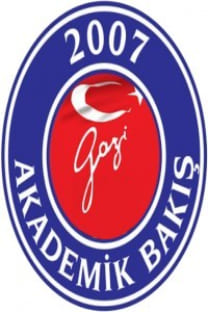Somali'de Barış ve Kalkınma Sürecinde Türkiye'nin Rolü
Somali, Başarısız devlet, Açlık krizi, Türkiye, Kapsamlı strateji
Turkey's Role in Somalia's Peace and Development
Somalia, Failed state, Famine crisis, Turkey, Comprehensive strategy,
___
- “Afrika Ülkeleri İle İlişkiler”, TC Dışişleri Bakanlığı İnternet Sayfası, http://www. mfa.gov.tr/turkiye-afrika-iliskileri.tr.mfa (Erişim tarihi: 23 Aralık 2012)
- “AMISOM Mandate”, AMISOM İnternet Sayfası, http://amisom-au.org/about/ amisommandate.(Erişim tarihi: 17 Ocak 2013)
- “AMISOM”, AMISOM İnternet Sitesi, http://amisom-au.org/about/amisom- background/(Erişim tarihi: 11 Ocak 2013)
- “Annual Report of the United States Commission on International Religious Freedom”, USCIRS Raporu, May 2010. http://www.uscirf.gov/images/annual%20report%202010.pdf (Erişim tarihi: 26 Aralık 2012)
- “Assessing Turkey’s Role in Somalia”, Crisis Group Policy Briefing No:92, 8 Oct 2012. http://www.crisisgroup.org/en/regions/africa/horn-of-africa/somalia/b092-as- sessing-turkeys-role-in-somalia.aspx (Erişim tarihi: 13 Ekim 2012)
- “A Synthesis Report of the Peace Mapping Study”, Interpeace and Centre for Rese- arch and Dialogue, june 2009. http://www.interpeace.org/publications/doc_download/61-a-synthesis-report- of-the-peace-mapping-study-english(Erişim tarihi: 18 Temmuz 2012)
- AYNTE Abdihakim, “Turkey’s Increasing Role in Somalia: An Emerging Do- nor?”, Al Jazeera Centre for Studies Report, 22 March 2012. http://studies.aljazeera. net (Erişim tarihi: 22 Ocak 2013)
- BAĞRIYANIK Zülfikar, “TÜRKİYE’NİN MOGADİŞU POLİTİKASI”, AFSAM İnter- net Sitesi, 07 Ağustos 2012. http://afrika.com.tr/FileUpload/bs367974/File/turkiyenin_mogadisu_politikasi. pdf (Erişim tarihi: 14 Ekim 2012)
- BARNETT John, W. Neil Adger, “Climate Change, Human Security and Violent Conflict”, Political Geography, cilt 26, sayı 6, 2007, s.639-655.
- BLACK Andrew, “Weapons for Warlords: Arms Trafficking in the Gulf of Aden”, The Jamestown Foundation, 18 June 2009, http://www.jamestown.org/single/?no_cache=1&tx_ttnews%5Btt_ news%5D=35148 (Erişim tarihi: 02 Mart 2013)
- “Conflict in Somalia: Drivers and Dynamics”, Worldbank Report, January 2005, s.7, http://siteresources.worldbank.org/INTSOMALIA/Resources/conflictinsomalia.pdf
- DAGNE Ted, “Somalia: Current Conditions and Prospects for a Lasting Peace”, CRS Report for US Congress, RL33911, 31 Agustos 2012, www.crs.gov (Erişim tarihi: 14 Ocak 2013)
- DERSSO Solomon A., “The Somalia Conflict-Implications for peacemaking and peacekeeping efforts”, Institute for Security Studies Paper 198, September 2009. http://www.issafrica.org/uploads/P198.PDF (Erişim tarihi: 19 Ocak 2013)
- “Djibouti”, CIA The World Factbook, https://www.cia.gov/library/publications/ the-world-factbook/geos/dj.html (Erişim tarihi:18 Şubat 2013)
- “EU POLITICAL Engagement to Somalia” EU İnternet Sitesi, http://eeas.eu- ropa.eu/delegations/somalia/documents/press_corner/eu_somalia_brochure_ en.pdf (Erişim tarihi: 22 Şubat 2013)
- “Failed States”, Foreign Policy İnternet Sayfası, http://www.foreignpolicy.com/failed_states_index_2012_interactive tarihi: 15 Kasım 2012)
- “Horn of Africa”, Encyclopedia Britannica, http://www.britannica.com/EBchecked/topic/8135/Horn-of-Africa (Erişim tari- hi: 11 Kasım 2012)
- “ICG toplantı sonuç tutanakları”, UNPOS İnternet Sayfası, http://unpos.unmis- sions.org/Default.aspx?tabid=9748&language=en-US (Erişim tarihi: 21 Ocak 2013)
- “IGAD Office of the Facilitator for Somalia Peace and National Reconciliation”, IGAD İnternet Sitesi, http://www.igad.org/ (Erişim tarihi: 19 Ocak 2013)
- “International Contact Group on Somalia 2-3 July 2012, Rome Final
- Communiqué”, UNPOS İnternet Sitesi, http://unpos.unmissions.org/LinkClick.aspx?fileticket=6kaV4LaGqzk%3D&tabi d=9744&mid=12667&language=en-US(Erişim tarihi: 18 Aralık 2012)
- “Islamists break Somali port truce”, BBC News, 21 Ekim 2009, http://news.bbc.co.uk/2/hi/africa/8318798.stm. (Erişim tarihi: 22 Aralık 2012)
- LEWIS Ioan M., A pastoral democracy: a study of pastoralism and politics among the Nort- hern Somali of the Horn of Africa, LIT Verlag Münster, Germany, 1999.
- “New Somali Prime Minister Unveils Smaller Cabinet”, Abcnews.go.com. 12 Ka- sım 2010, http://abcnews.go.com/International/wireStory?id=12131958. (Eri- şim tarihi: 23 Aralık 2012)
- “October 2012 Somalia Fact Sheet”, UNHCR İnternet Sayfası, http://data.unhcr. org/horn-of-africa/country.php?id=197 (Erişim tarihi: 5 Aralık 2012)
- O’KASICK Jeremy, “Ethiopian Invasion of Somalia”, Global Policy Forum, 14 Ağustos 2007, http://www.globalpolicy.org/component/content/article/153/26334.html (Eri- şim tarihi: 28 Kasım 2012)
- RICHARD Suzanne, Near Eastern archaeology: a reader, Eisenbrauns, USA, 2003.
- SAMATAR Ahmed, Socialist Somalia: Rhetoric and Reality, Zed Pres, London, UK, 1998.
- SAMANTAR Mohamed, David Leonard, “Puntland and the Quandary of Somali Piracy”, Radio Daljir, 18 December 2012. http://www.radiodaljir.com/xview.php?id=867 (Erişim tarihi: 26 Aralık 2012)
- SCHIE Kristen Van, “Al-Shabaab ‘dug in like rats”, IOL News, 10 Ağustos 2011, http://www.iol.co.za/news/africa/al-shabaab-dug-in-like-rats-1.1114585(Erişim tarihi:23 Aralık 2013)
- “Somalia – People Groups”, Joshua Project, http://www.joshuaproject.net/countries.php?rog3=S (Erişim tarihi: 13 Aralık 2012)
- “Somalia”, CIA The World Factbook, https://www.cia.gov/library/publications/ the-world-factbook/geos/so.html (Erişim tarihi: 12 Şubat 2013) (Erişim
- ISSN: 1307-9778
- Yayın Aralığı: 2
- Başlangıç: 2007
- Yayıncı: Hale Şıvgın
Ramazanoğulları Beyliği'nin Kuruluşu
İktidardan muhalefete M. Fuad Köprülü'nün siyasi mücadelesi /1956-1966)
Avrupa bütüleşmesi için önemli bir adım: Avrupa konseyi ve Türkiye'nin konsye üyeliği meselesi
Erkan CEVİZLİLER, Ali Servet ÖNCÜ
İktidardan Muhalefete M. Fuad Köprülü'nün Siyasi Mücadelesi (1956-1966)
Temettüat kayıtlaına göre Manisa Koldere Çiftliği/Köyü'nün Sosyo-Ekonomik durumu (1844-1845)
Türk-Arap İlişkilerine Etkisi Bakımından Bağdat Paktı
Osmanlı Devleti'nde akıncı ocağının sonu
Rus Çarlığında Müftülüklerin Kuruluşu ve Gelişimi
Türkiye ile Almanya Arasındaki Bilimsel İlişkiler: Türk-Alman Üniversiteleri
